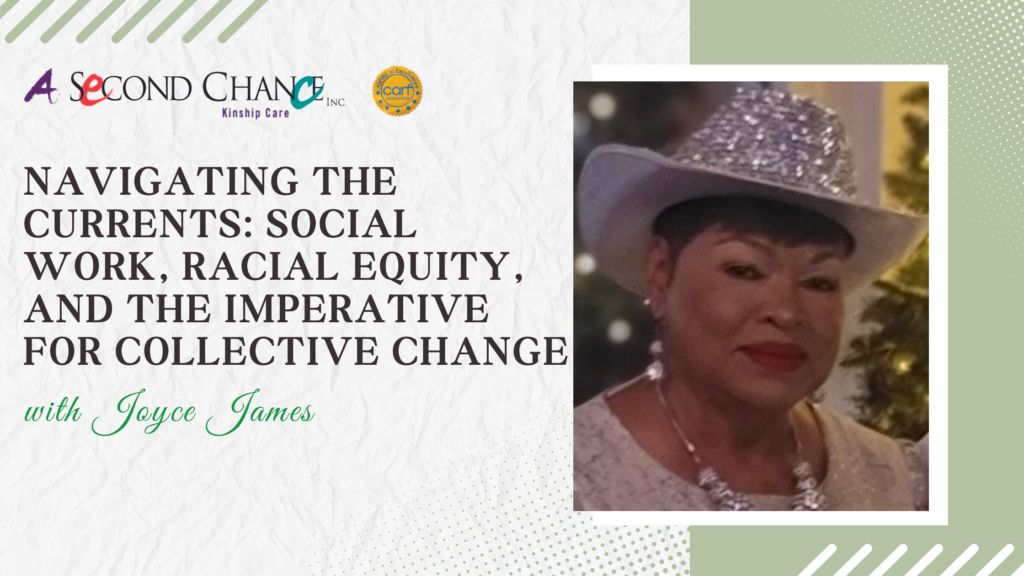Blog
Navigating the Currents: Social Work, Racial Equity, and the Imperative for Collective Change
Within the elaborate fabric of social work, the promotion of race equity takes center stage as a vital element, intricately woven into the fundamental principles shaping the profession. Seasoned social worker Joyce James sheds light on the significant influence social workers can wield in dismantling racial disparities embedded within the systems they navigate.

The essence of advocacy within social work lies in the understanding that social workers operate within various systems and institutions, each leaving its imprint on the lives of those who are marginalized and oppressed. The disparities evident in the system outcomes for different racial groups propel social workers to a pivotal position, one that demands collective and organized efforts.
James underscores the necessity for social workers to delve deeper into the root causes of racial inequities within the systems they engage with. This involves a transformative shift from merely addressing surface-level symptoms to cultivating a profound analysis of institutional and structural racism. The challenge, however, lies in the fact that traditional education often falls short of providing social workers with the tools necessary to grasp the intricacies of racism and its pervasive impact.
Addressing systematic racism necessitates a broader lens—one that views racism not as an individual act but as a deeply ingrained societal phenomenon. James argues that social workers should actively seek training that moves beyond surface-level cultural competency, urging a shift from asking who is racist to understanding how ingrained racial biases affect decision-making processes.
James draws attention to the unsettling paradox where well-meaning social workers, despite their good intentions, may inadvertently contribute to the harm that persists within systems. This calls for a reevaluation of ingrained beliefs and attitudes about marginalized communities, particularly communities of color, to prevent reinforcing harmful stereotypes.
We come to work to help and not to harm. A lot of work has to be done for the profession to really have a significant impact on institutional and structural racism. We have to be able to move away from the old beliefs that the outcomes are about the people, and we have to begin to find our places and organize inside of systems so that systems become more accountable for their impact on the outcomes that we see, in particular for the African American population as well as for Hispanic, Latinos, Native Americans, and other marginalized populations.
She told ASCI.
To engage with diverse communities effectively, James advocates for a shift in institutional culture. Social workers need to create spaces that genuinely invite the voices of those they serve, fostering an environment where communities feel safe expressing their experiences with the systems. This cultural shift, however, is contingent on the willingness of institutions to embrace accountability and encourage social workers to challenge existing norms.
Collaboration becomes a powerful tool in the arsenal against racial disparities. James emphasizes the need for social workers to work collectively across systems, understanding that racial inequities manifest uniformly across various domains. This collaborative approach, breaking down silos and dismantling barriers, is essential for creating a more interconnected, supportive environment for families navigating multiple systems.
The narrative weaves through successful interventions led by social workers, citing examples where systemic change occurred. James shares her own experience leading the Texas Child Protective Services Program, where a focus on undoing racism led to unprecedented outcomes, challenging the status quo. Yet, a note of caution is sounded, reminding us that systemic resistance to change is persistent, requiring continuous, intentional effort.
Aspiring social workers entering the field face the challenge of dismantling the structural barriers that perpetuate racial disparities. James advocates for a shift in social work education, making racial equity analysis an integral part of the curriculum. Joining forces with social work organizations becomes a strategic move, amplifying voices and advocating for an anti-racism culture within institutions.
We have to have accountability on the part of the systems and institutions that train us and that we work in, to give us the space, knowledge, consciousness, and awareness that we’re not required to have to get our degrees so that we can go out and do the work of helping rather than contributing to the harm that has continued to exist in spite of the fact that social workers are well-meaning, and are well-intentioned. We have not seen the kind of change in systems and institutions where we would be able to say that we have achieved our vision for why we come to the work.
James shared.
Academic institutions must be held accountable for equipping social workers with the tools to address racial disparities effectively. While acknowledging the challenges, James continuously stresses the importance of social workers finding and creating spaces to express their observations and experiences within institutions.
In conclusion, Joyce James shared a compelling plea for proactive engagement within the domain of social work. She advocates for a transformative change, underscoring that the pursuit of racial equity necessitates a shared endeavor marked by ongoing education, introspection, and an unyielding dedication to dismantling deeply ingrained structures of oppression.